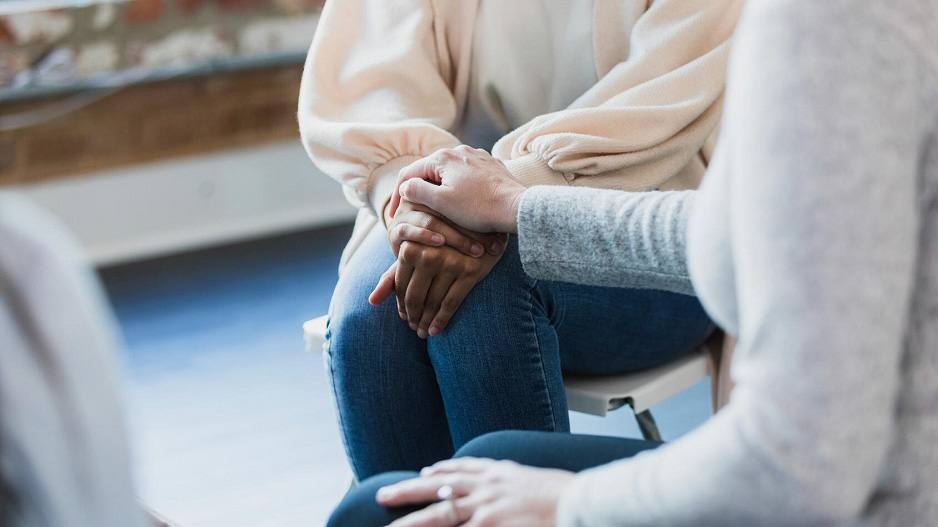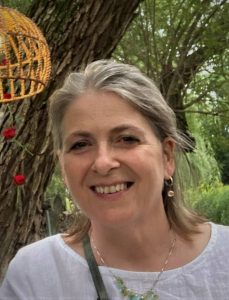
On October 23, 2018, Rita Krueger underwent surgery for pancreatic cancer. Mark Truty, M.D., a Mayo Clinic hepatobiliary and pancreatic surgeon, removed her pancreas, duodenum, spleen and left adrenal gland and removed and reconstructed several blood vessels involved in her tumor.
Within hours of surgery, a pathology report revealed that Rita was cancer-free.
Eight months prior, another surgeon had told Rita to get her affairs in order. Rita and her husband, Jim, sought a second opinion at Mayo Clinic, where Dr. Truty and the pancreatic cancer care team are advancing treatment for this deadly disease.
Five years later, Rita is doing well and learning to thrive without a pancreas. Here's what life after pancreatic cancer has taught her:
Life without a pancreas requires some adjustment.
Just before her diagnosis, Rita learned she had developed diabetes, a common sign of pancreatic cancer. She began taking insulin and will need to do so for the rest of her life. Living without a pancreas requires significant changes to diet and lifestyle.
At first, Rita resisted using an insulin pump, a device worn on the body to dispense insulin through a catheter when you eat automatically. "I wanted to be me — without a device attached to my body," she says.
"I started off trying to give myself a dose of insulin once daily and before each meal, which helped me become more disciplined and more consistent about my eating," Rita says. "But my blood sugar numbers continued to be unstable." Her local endocrinologist, Crispin Semakula, M.D., told her he didn't think she could stabilize her blood sugar without an insulin pump.
In September 2020, Rita finally got the device. "It can easily be hidden under clothes and doesn't have any external tubes. I fill it with insulin and repeat the process every 72 hours. It does help a lot. It took a while to understand that some activities cause my blood sugar to drop. If I'm shoveling snow, working in the yard or taking a walk, all those things drop my blood sugar. It's a balancing act," she says.
Getting the pump was about accepting reality, says Rita. "I used to have a different normal. I rarely got sick. I'd never had any surgeries. I was surrendering — giving in to my new normal."

Chemo brain is real.
Chemo brain is a term that describes the thinking and memory problems that can occur during and after chemotherapy. It can also be called chemo fog, cancer-related cognitive impairment or cognitive dysfunction. The causes of these problems aren't well understood, but they can be frustrating and debilitating for cancer survivors.
"I went back to work mid-January 2019," says Rita. This was less than three months after she completed chemotherapy, radiation and surgery. "I'm an information technology analyst. I need to quickly answer questions and think through scenarios to solve problems. Getting back to that was a slow process. My word choices were more deliberate — especially at work — so I spoke slower. Because I was more relaxed around friends and family, they sometimes laughed at my choice of words."
The severity and duration of chemo brain symptoms differ from person to person. Rita's symptoms lingered for some time, but she now feels they have resolved.
Prayer and positivity are healthy coping mechanisms.
Rita's spirituality has helped her cope with the many changes that pancreatic cancer has wrought. "I try to be the optimist," she says. "I have faith in God. And I believe that we can overcome things with him. I pray, and I believe in God for restoration. That's primarily how I cope."
Confiding in friends and family helps her cope, too — but Rita has learned to be selective about whom she confides in. Before sharing her diagnosis with people, she carefully considered who could hear the information and respond in a positive and supportive way.
"When I started treatment, I didn't want to tell anyone because when people hear 'pancreatic cancer,' they hear the death bell, and I only wanted people to speak positively about my situation," says Rita. "I would only go to friends I could trust to give me positive feedback or sound advice. I needed to have good boundaries about whom I would tell things to and have people that prayed with me and kept me focused on the right stuff."
Rita feels strongly that a positive attitude has helped her recover. "There are a lot of prayers and people in my life that helped me stay mentally focused on the positives and successes — that's huge in itself," she says. "I find that if you're always focused on the problem, you can put yourself in despair and spin out of control. But if you focus on the positive, the things that are going right and the things you can control, you will have a more successful outcome."
Sharing is healing.
To share her story with others, Rita started a blog about her pancreatic cancer experience and shares her blog posts on social media. "I've had people reach out to me from multiple places in the U.S. They find me on Facebook, send me notes, and then I talk to them. It's been therapeutic for me to help people. It's helped me heal from my trauma," she says.
Rita also has begun assembling care packages for newly diagnosed pancreatic cancer patients, called "Survival PACs." The packages include her book about her cancer experience, "Hope… for an Outstanding Outcome," resources for pancreatic cancer patients, a water bottle, aromatherapy oil, a journal and a pen.
Helping others is now part of Rita's healing process. "When you're going through treatment, you start thinking cancer is part of who you are," she says. "It takes a while to remember that it's not your identity, and you can get beyond it. And you can still live your life. I have some limitations, but I continue to do most of the same activities and live a healthy, productive life. God helped me take a curse, turn it around and use it to bless others."
This article originally appeared on the Mayo Clinic Comprehensive Cancer Center Blog.
Learn more
Learn more about pancreatic cancer and find a pancreatic cancer clinical trial at Mayo Clinic.
Join the Pancreatic Cancer Support Group on Mayo Clinic Connect.
Read the story of Rita's diagnosis and treatment.
Also, read these articles:
- "Predicting pancreatic cancer outcomes prior to surgery"
- "'My life is in the right hands.' Surgery gives California woman hope after cancer diagnosis"
- "Dear Mayo Clinic: Pancreatic cancer risk, symptoms and treatment"
- "People with pancreatic cancer are living longer, thanks to improved approaches"
- "Advances in treating pancreatic cancer mean options and hope"
- "People with pancreatic cancer are living longer, thanks to improved approaches"







